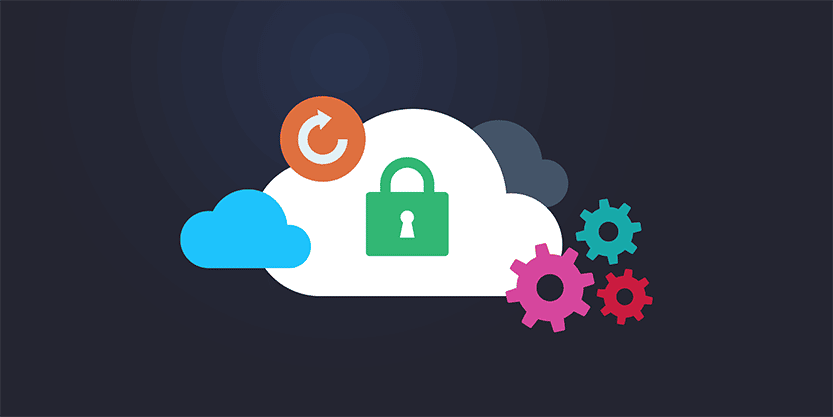Advanced Remote Data Backups Solutions
Advanced Remote Data Backups Solutions
Blog Article
Easy-to-use Saas Backup Tool For Experts

Organizations must overcome the crucial challenge of protecting their valuable information as digital data storage becomes more and more important. By offering safe and easily accessible storage for important data, cloud database backup offers a solution. We will discuss the advantages and significance of cloud database backup in this article, as well as the best methods for putting it into practice and effectively managing it.
- Knowing how to backup a cloud database
The act of storing copies of your database online in a remote server or data center is referred to as cloud database backup. Data redundancy, hardware failure protection, natural disasters, and cyber threats are all guaranteed by the off-site backup solution it offers.
- Advantages of cloud database backup
Innovative Online Email Backup Service Must-Haves
Compared to conventional backup techniques, cloud database backup offers a number of benefits. These comprise:
- Data redundancy: By storing data across multiple servers, hardware failures and disasters are less likely to cause data loss.
Scalability: Depending on your needs, cloud backup makes it simple to scale up or down your storage requirements.
Accessibility: With cloud backup, any device with an internet connection can access your data whenever, wherever you want.
Cost-effectiveness: Cloud backup makes it unnecessary to spend money on expensive backup personnel, infrastructure, and maintenance.
Automated Backups: Cloud backup services frequently offer incremental and automated backups, which eliminate the need for manual labor.
- Picking the best Cloud Database Backup Service:
Take into account the following when choosing a cloud database backup provider: - Ubuntu Online Backup
Cutting-edge Backup And Recovery Storage In Detail
- Security Measures: Make sure the provider uses reliable security measures like compliance certifications, access controls, and encryption.
- Reliability: Look for businesses that have a solid reputation for dependability and long-term warranties.
- Scalability: Verify that the service provider provides storage options that are adaptable to your expanding data requirements.
Data transfer speed: Take into account the provider's bandwidth and network infrastructure for quick and effective data transfers.
- Cloud database backup implementation:
Use these best practices to implement cloud database backup successfully:
- Define Backup Policies: Clearly specify your find here backup requirements, including the frequency, retention, and recovery point goals.
- Encryption: To guarantee the confidentiality and integrity of your data, encrypt it before transferring it to the cloud.
- Regular Testing: Verify the veracity and thoroughness of your backups by regularly testing the restoration process.
Implement monitoring and alerting mechanisms to quickly identify problems or failures in the backup procedure.
- Disaster Recovery Plan: Create a thorough disaster recovery plan that outlines how to recover data in the event of an emergency.
Cross-platform Cloud Backup For Telecommunications Full Analysis

- Cloud database backup management:
Continuous monitoring and upkeep are necessary for managing cloud database backup. Think about the following advice:

- Regularly Monitor Backups: Keep an eye on the backup procedure to make sure it's finished successfully and quickly fix any mistakes or failures.
Update Backup Policies: To keep up with evolving business requirements and compliance requirements, periodically review and update your backup policies.
- Retention Management: Depending on legal requirements and business priorities, control how long your backups are kept.
Implement data archiving techniques to move infrequently accessed data to cost-effective storage tiers while maintaining accessibility.
Periodic Reviews: Examine your cloud database backup strategy on a regular basis to spot areas for improvement and make sure it aligns with company objectives.
What's Important:
Secure Backup Server For Small Business Market Analysis
- Cloud database backup offers advantages like data redundancy, scalability, accessibility, cost efficiency, and automated backups for secure and accessible storage of important data.
- When selecting a provider, take security precautions into account, as well as dependability, speed of data transfer, and reliability.
Creating backup policies, encryption, regular testing, monitoring and alerting, and creating a disaster recovery plan are all why not try this out steps in the implementation of cloud database backup.
Regularly monitoring backups, updating backup policies, managing retention, implementing data archiving, and conducting periodic reviews are all necessary to effectively manage cloud database backup.
Keep in mind that protecting the sensitive data in your organization requires the implementation of a strong cloud database backup strategy. To ensure data security, accessibility, and business continuity, embrace cloud backup's power.
Key Takeaways or a related term
Data redundancy and protection against hardware failures or disasters are guaranteed by cloud database backup.
Scalability, accessibility, cost-effectiveness, and automated backups are some of the advantages. Online Backup Vs Local Backup.
When selecting a provider, take security precautions into account, as well as dependability and data transfer speed.
- Adopt best practices like encryption, regular testing, monitoring and alerting, disaster recovery planning, and backup policies.
Monitoring backups, updating policies, managing retention, putting data archiving into place, and conducting periodic reviews are all parts of effective management.
Report this page